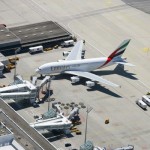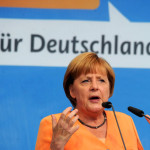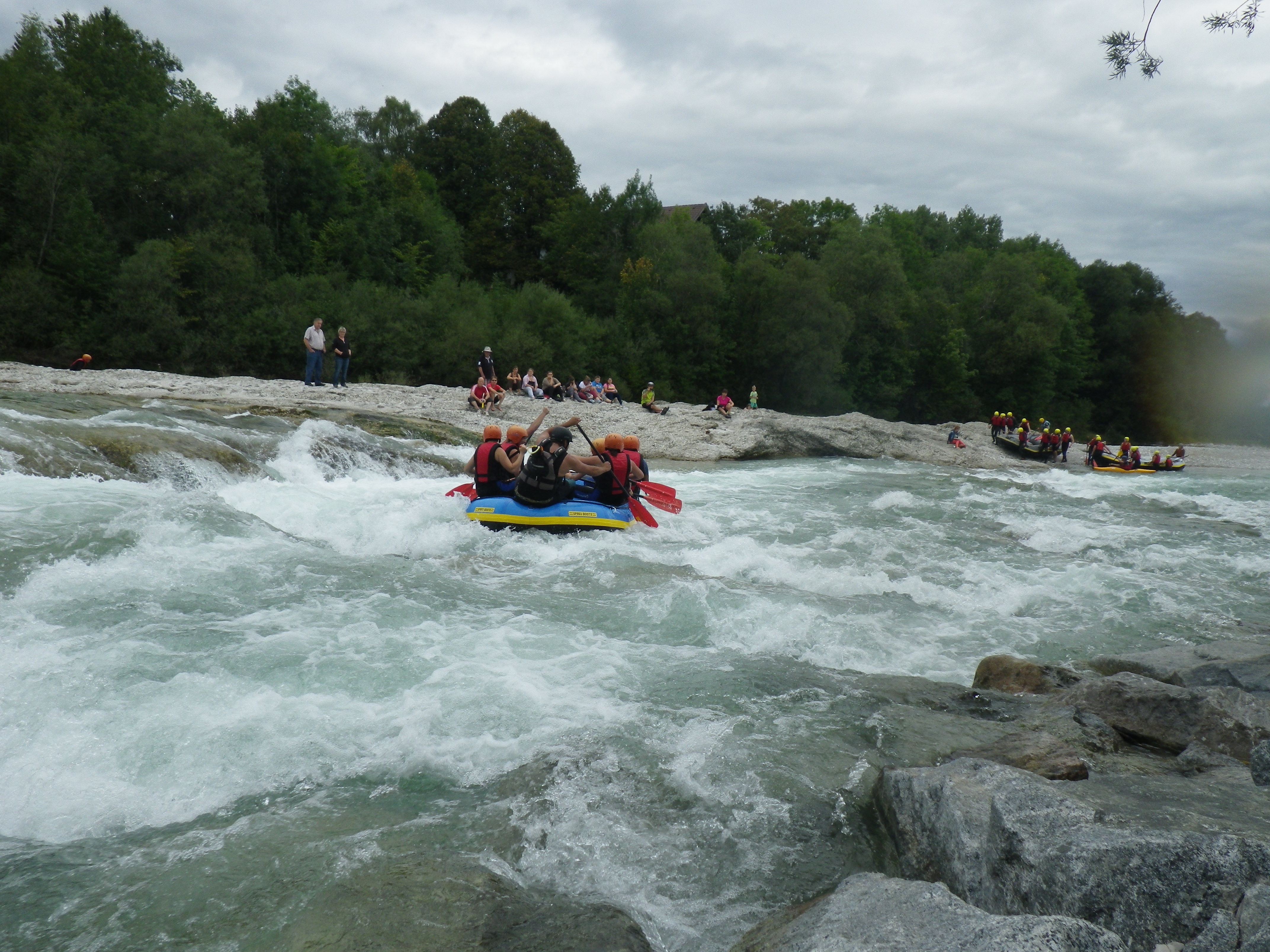Merkel Set For Third Term; Coalition Speculation Starts
Berlin (dpa) - Chancellor Angela Merkel emerged the clear winner of Sunday’s election after her conservative political bloc surged to its best result in 20 years, giving her a strong hand in likely talks on forming a new grand coalition of the nation’s biggest parties.
Merkel’s Christian Democrats (CDU) and their Bavarian-based Christian Social Union (CSU) associate party scored 41.5 per cent of the vote after achieving a stunning upward swing of more than 8 percentage points, according to preliminary official results. ”It’s a super result,” she told supporters at CDU headquarters in Berlin to loud applause and chants of “Angie, Angie.” Pilloried in nations at the centre of the eurozone debt crisis, 59-year-old Merkel is at the peak of her power as she heads into a third term as head of Europe’s biggest economy.
Angela Merkel renews her mandate as Federal Chancellor after winning the German elections CDU/CSU got 42,2% of the votes, on September 22, 2013…Photo: Goncalo Silva/NurPhoto
In addition to overseeing a rebound in Germany’s economy, Merkel has won praise from German voters for what they see as her deft handling of the financial crisis, with Sunday’s result placing her party within reach of an absolute majority for the first time in about five decades. But her triumph came at a cost for her current coalition partner, the pro-business Free Democrat Party (FDP), which suffered a major political debacle with a 9.8-percentage-point swing, which will result in the party being bundled out of parliament for the first time in its 65-year history. ”That is the worst result we have had ever,” said Rainer Bruederle, the party’s prime candidate. “It’s not the end of the party. It will be harder, but the work will go on.”
The FDP managed to garner just 4.8 per cent of the vote, below the 5 per cent that parties need to gain representation in the lower house of parliament, the Bundestag. This came after more than 2 million voters abandoned the FDP and voted for Merkel’s CDU.
The likely end of Merkel’s current CDU-FDP coalition had sparked speculation about the shape of her new government. Sunday’s results indicate Merkel will turn to the opposition Social Democrats (SDP) to form a new grand coalition. But Merkel refused to be drawn on her plans for a new government following the collapse of the FDP, which has already crashed out of eight state parliaments since it joined Merkel’s coalition in 2009.
This included in the state of Hesse, where an election, also on Sunday, showed that voters had rejected a CDU-FDP grouping, but left it unclear as to which parties would be able to govern. Speaking in a televised panel discussion, Merkel said she expected to be negotiating with the SPD to forge a new coalition government to rule Germany. She also said it was “obvious” she would not attempt to rule with a minority government.
Front pages of Spanish newspapers are photographed in Madrid, Spain, on 23 September 2013, showing headlines and photos German Chancellor Angela Among them is the Title of El Mundo “Merkel, Merkel über alles “. Merkel reacting to her victory in the German general elections, on the day after Merkel’s conservative political bloc surged to its best result in 20 years, giving her a strong hand in likely talks on forming a new grand coalition of the nation’s biggest parties. EPA/JUAN CARLOS HIDALGO (recrop of gra004
Merkel’s first 2005-09 chancellorship was a grand coalition with the SPD, which scored its second-worst result since World War II on Sunday, with 25.7 per cent. ”The ball is in Merkel’s court,” said Peer Steinbrueck, the SDP lead candidate, who conceded defeat to the chancellor. This came after the SDP’s combined vote with its Green Party allies fell well short of what was needed to topple Merkel. “She is the one who has to assemble a majority,” said Steinbrueck.
A new grand coalition might also open the way for a slight relaxation in Merkel’s drive for fiscal austerity. The SPD has emphasized the social strains caused in southern European nations by the chancellor’s insistence on resolving the eurozone’s long-running debt crisis with budget discipline.
The eurosceptic Alternative for Germany (AfD) also failed to secure seats in the new parliament, with official vote tallies showing it falling short of the 5-per-cent threshold, with 4.7 per cent of the vote. Still, the party celebrated as one of the winners of the election. ”We enriched democracy in Germany,” AfD leader Bernd Lucke told jubilant supporters.
The AfD, which calls for the break-up of the 17-member eurozone, had achieved a “very strong result” despite only being founded at the start of this year. The mood was far more downbeat for the Green Party and the hard left Linke after the election projections emerged.
While the Greens’ vote slumped to 8.4 per cent following a swing against the party of 2.3 percentage points, the Linke fell to 8.6 per cent after a 3.3-percentage-point swing. Both the SPD and the Greens have ruled out forming a coalition with the Linke.







 Euro Converter
Euro Converter